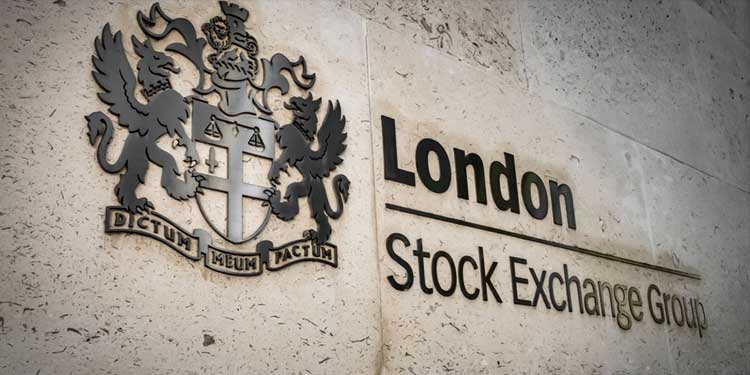
LSEG’s Vision for Blockchain Integration:
Murray Roos, Head of Capital Markets at LSEG, shared insights into the company’s journey into blockchain technology. He noted that LSEG had reached a pivotal juncture in its exploration, prompting the decision to advance its plans. Importantly, Roos clarified that the exchange’s objective was not to develop infrastructure around cryptocurrency assets but rather to harness the technology that underpins popular digital tokens like Bitcoin (BTC) to enhance the efficiency, transparency, and cost-effectiveness of traditional asset trading. Roos emphasized the importance of ensuring that this digital transition adheres to regulatory standards and oversight, stating, “The idea is to use digital technology to make a process that is slicker, smoother, cheaper and more transparent…and to have it regulated.” The decision to proceed was grounded in the belief that public blockchain technology had reached a level of maturity and readiness for investor adoption.
The Tokenization Movement and LSEG’s Aspiration:
Roos referenced the broader industry sentiment around the tokenization of assets, as highlighted by BlackRock Chief Executive Larry Fink earlier this year. Fink emphasized that the future of markets lay in the tokenization of assets, signaling a shift in the financial landscape. To align with this vision, LSEG’s move to explore blockchain technology is a strategic one. If successfully implemented, LSEG could become the first major global stock exchange to provide investors with an end-to-end blockchain-powered ecosystem. Notably, several blockchain-powered initiatives in the financial industry have so far focused on specific aspects of the asset lifecycle, such as issuance or trading, rather than encompassing the entire process from issuance to trading, reconciliation, and settlement.
A Digital Competitor and Commitment to Innovation:
Roos clarified that LSEG’s venture into the digital markets would be a direct competitor to its traditional business and that the motivation behind this development was not to shore up its equities markets, which have faced challenges in recent years due to a decrease in initial public offerings. He affirmed the company’s dedication to the London equity markets and its ongoing commitment to innovation.
The Road Ahead and Regulatory Collaboration:
As part of its strategy, LSEG is exploring the possibility of establishing a separate legal entity for the digital markets business. The aim is to have the first market operational within the next year, subject to regulatory approvals. Discussions with regulators spanning multiple jurisdictions, as well as engagement with the UK government and Treasury, are already underway. The ultimate goal is to create a global platform where participants from various jurisdictions can seamlessly interact while adhering to relevant rules, laws, and regulations, even across multiple jurisdictions simultaneously—an unprecedented feat in the analog world.
Unlocking Digital Possibilities:
Roos illustrated the potential impact of LSEG’s digital venture with an example involving parties from Switzerland, Japan, and the United States. In traditional markets, conducting a transaction among these entities could be complex. However, the digital approach could simplify such transactions, provided it garners support from multiple regulators. Initially, the digital business is expected to focus on private markets, expanding access to available products and instruments. Once proven successful, the service will extend to encompass a wider range of assets. Roos noted that the technical potential for digitizing various traded asset classes was exceptionally high.
Blockchain in the Financial Industry:
LSEG’s venture into blockchain and tokenization follows a broader trend in the financial industry. Traditional financial institutions have begun to explore and integrate blockchain technology into their operations. For example, SWIFT, a prominent bank messaging network, has shared insights into its engagement with blockchains to address interoperability challenges across various blockchain networks. Additionally, Lufthansa Airlines introduced blockchain-based technologies, including a nonfungible token (NFT) loyalty program, and Bitcoin Apex announced plans to leverage blockchain to digitize the distribution of securities for small and medium enterprises (SMEs) in Europe. Data from the European securities regulator Esma revealed that traditional assets worth $800 million had already been tokenized in the European market.
The Potential Impact and Future of Finance:
The launch of blockchain-based products by LSEG holds the promise of significant value enhancement. Many industry experts believe that asset tokenization is poised to shape the future of financial markets. Despite regulatory challenges, the industry remains confident that crypto exchange-traded funds (ETFs) in the United States will eventually be approved. It’s seen as a matter of when, not if.
Conclusion:
LSEG’s pioneering move to introduce a traditional asset trading platform on blockchain is a monumental moment for the financial industry. As the first major exchange to embrace this technology, LSEG’s decision has the potential to catalyze the widespread adoption of blockchain in traditional finance. Blockchain’s transformative potential to enhance trading efficiency, transparency, and security is becoming increasingly evident, and LSEG’s initiative marks a significant step towards realizing this potential. As more exchanges and financial institutions follow suit, blockchain technology is set to reshape the financial industry, making trading more efficient, transparent, and accessible, and opening up new horizons for investors and innovators alike.